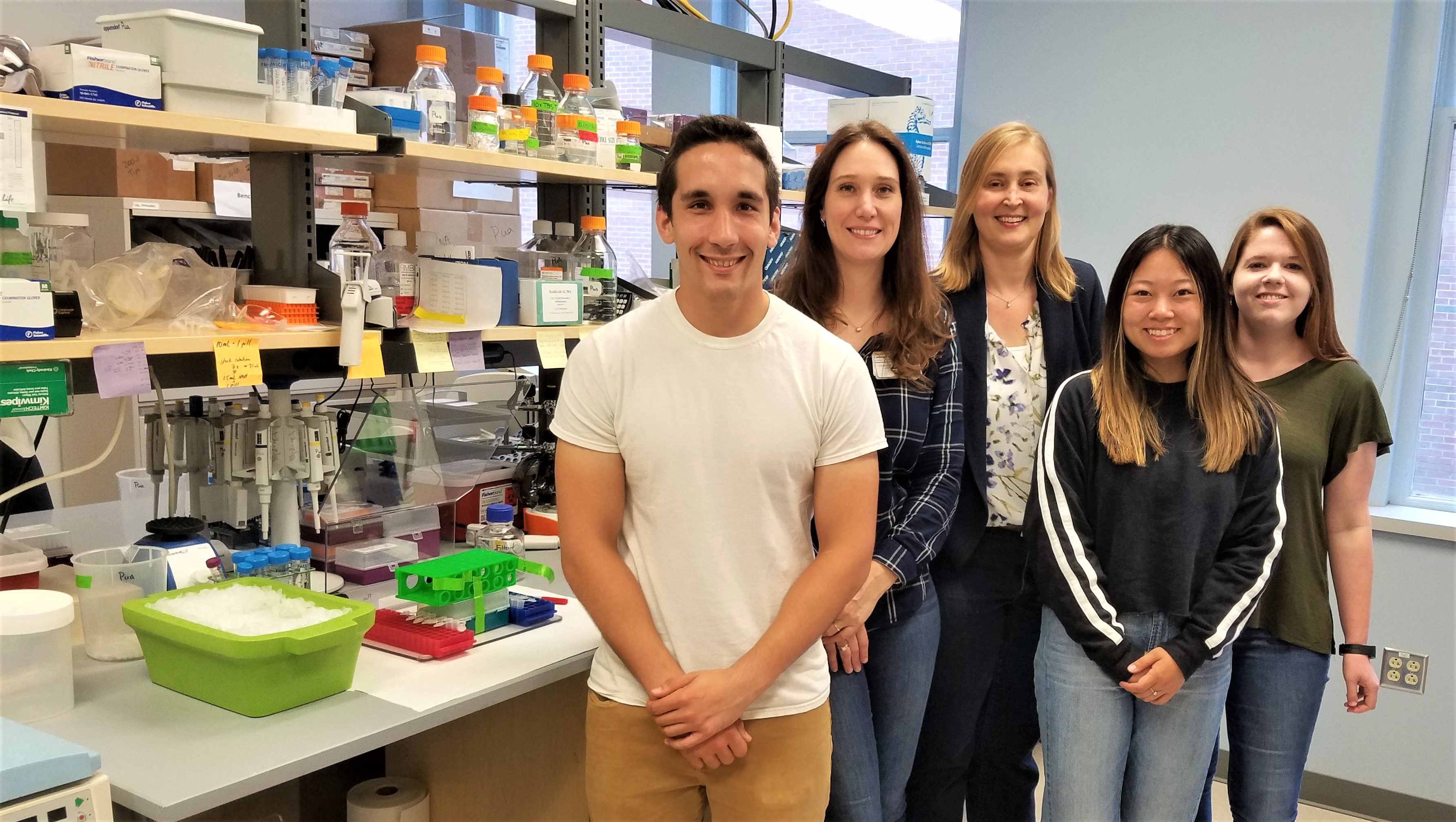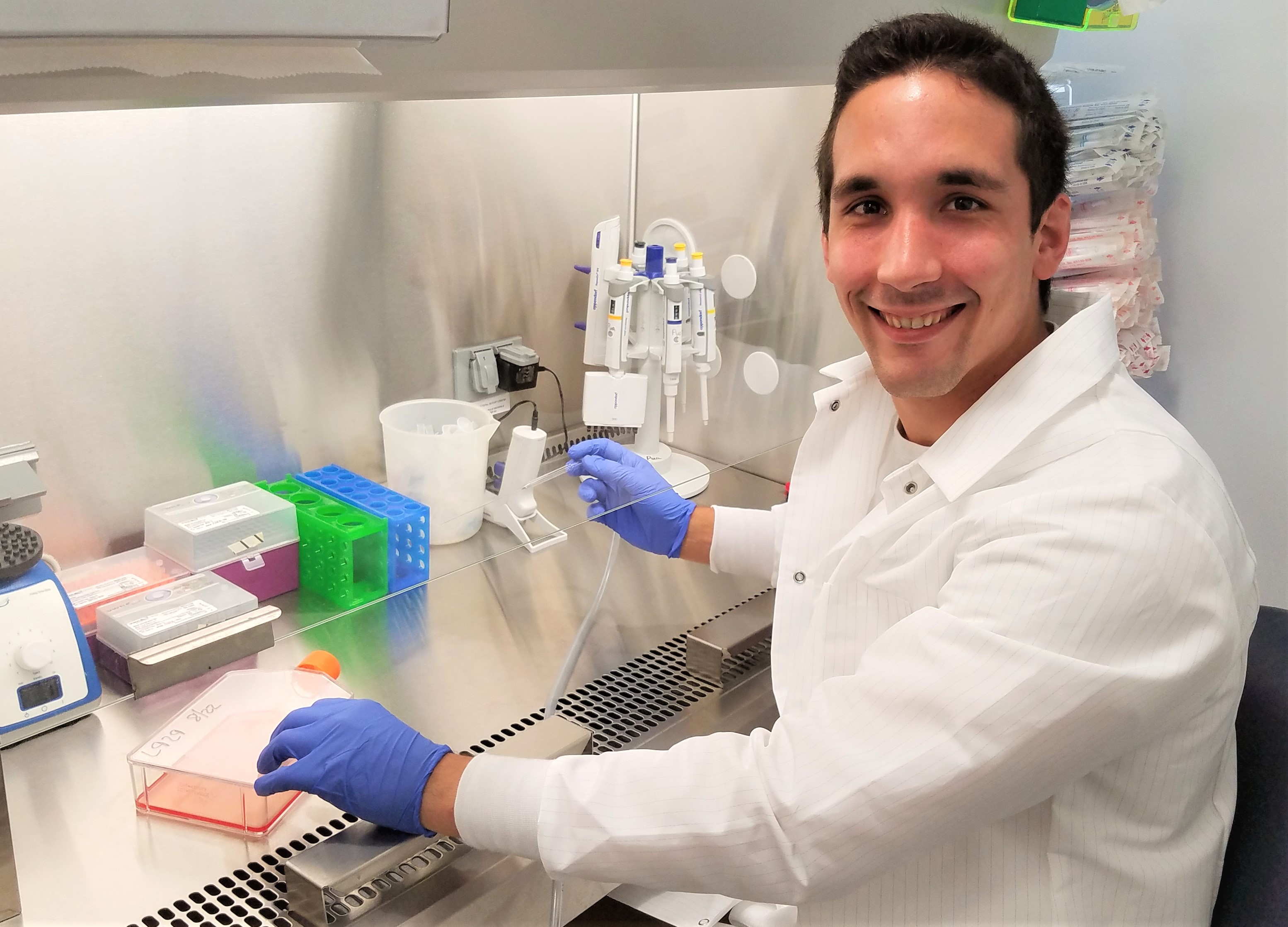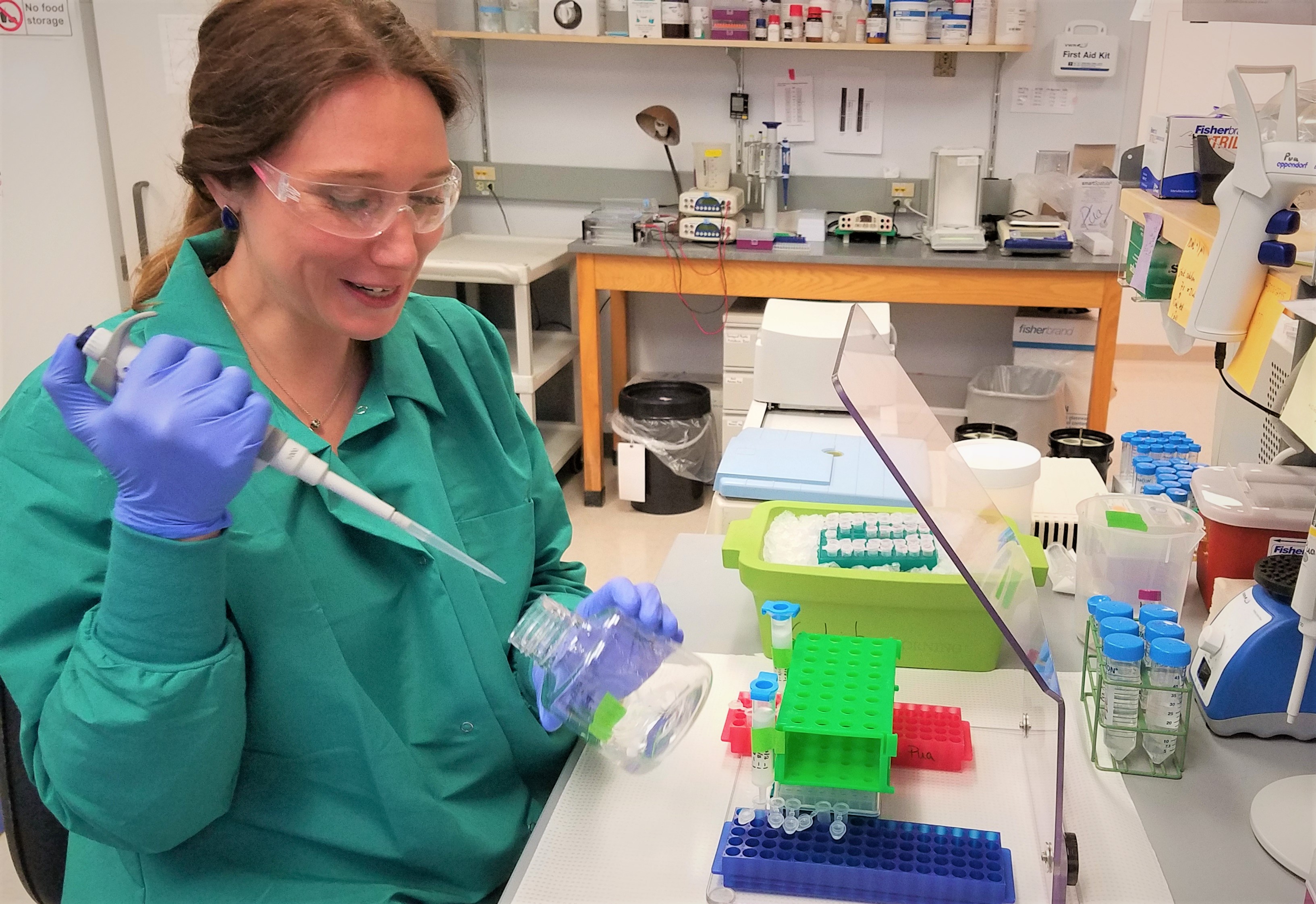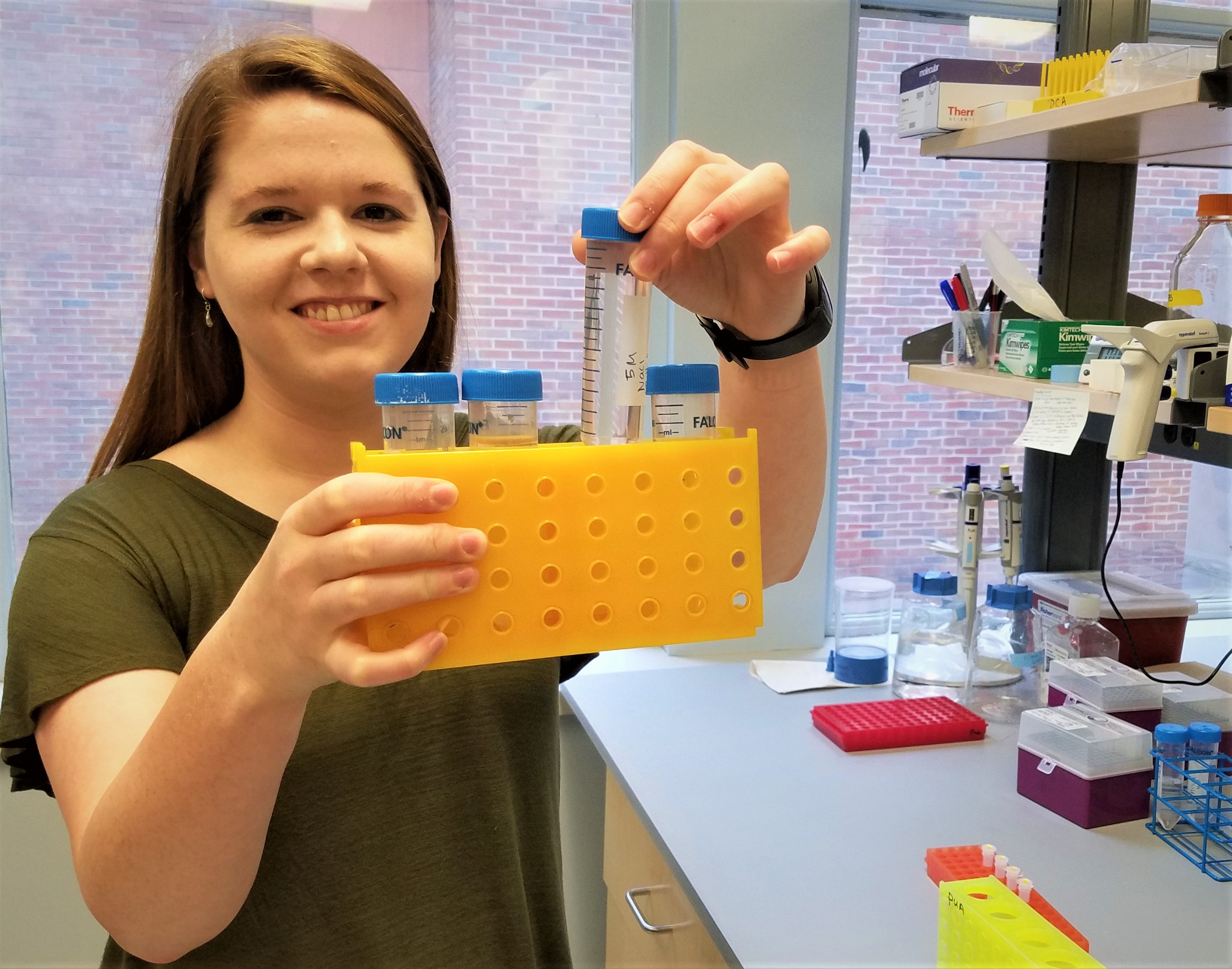Dr. Heather Pua is an Assistant Professor of Pathology, Microbiology, and Immunology. She earned her B.S. in Biology and her M.D. Ph.D. in Immunology from Duke University, where she identified a role for autophagy in naive T cell survival. She then moved to the West Coast, completing residency in Anatomic Pathology, clinical fellowship in Molecular Genetic Pathology, and post-doctoral fellowship at the University of California, San Francisco.
The Pua Lab studies how miRNAs regulate effector cell programs, with particular attention to their role in pathologic lung inflammation. They also investigate extracellular small RNAs, which are abundant in body fluid and were until recently dark matter in the body. These goals are accomplished using RNA biology’s molecular tool kit in combination with classic cellular immunology in both mice and humans.
With these studies, the lab aims to uncover novel functions of miRNAs in the immune system, understand how miRNAs act in physiological contexts, and leverage miRNA biology to discover new molecular networks that regulate pathologic inflammation.
They graciously let us take some photos of them, in the lab, and answered our questions, beginning with "What’s going on in your lab that we should get excited about?"
Dr. Pua responded, "Lots of things! We are busy picking up steam in both our studies of intrinsic miRNA function in immune cells as well as our work on extracellular RNAs and the vesicles that carry them. Although most of our prior research was focused on T cells in allergic lung inflammation, we have some interesting new findings on how miRNAs selectively regulate pro-inflammatory programs in macrophages that are plunging us into a new field of immunology. We are also charging ahead in our studies on extracellular vesicles, working on applying advanced single vesicle technologies to detect and trace these tiny communication packets as they travel between cells of the body as well as determine their function during tissue inflammation. " Our spotlight interview continued from there.

Pua Lab, L to R: Neil Sprenkle, Carleigh Gray, Heather Pua, PhD, Grace Huang, Katy Bunn
What is something that makes your lab team or your research program really special?
I think there are two things that make our lab special. First, everyone is genuinely passionate about their science. I am so fortunate to work with a group of trainees and staff who are enthusiastic, driven, and committed to research. I also think that our research program is special because we seek to use basic immunology to advance knowledge in the field of chronic inflammatory diseases. This group of allergic, autoimmune and metabolic diseases not only affects large numbers of individuals but often develop in children or young adults. They are all morbid conditions that substantially affect quality of life. And so far they are typically managed (but never cured) with non-specific immunosuppression which is associated with significant side effects. This means that there is both great need and great opportunity for advancement in this field.
What is one topic in your field that you are excited about right now?
There have been a flurry of exciting papers in the past 6 months about extracellular vesicle biology, driven in part by the NIH’s Extracellular RNA Communication Consortium (see https://www.cell.com/consortium/exRNA). Although the field is still in its infancy, there is accumulating evidence that extracellular vesicles play critical roles in disease processes. And that vesicle signaling both to and from the immune system may be particularly important for many of these disease processes.
Are there any trends in your field that you think people should be aware of (good or bad)? What topics do you think we will be talking about in 5 years? 10 years?
As a Molecular Pathologist, I am excited about the continual growth of advanced diagnostics in medicine. I believe we will see over the next decade a major expansion in liquid biopsy technologies, which will allow us to diagnose and monitor diseases in tissue from blood samples. I also hope that there will be major growth in phenotypic assays for inflammatory diseases (including cytometry, expression profiling, epigenetics and maybe even extracellular vesicle assays) that help to not only diagnose but also guide treatment for these conditions. Finally, I think we will learn from extracellular vesicles how to build drug delivery systems that are both more selective and more efficacious in treating disease.
What do you think has changed since you've gotten into your field?
The pace of science is so fast. When I left graduate school, we were excited to do 4 color flow cytometry. When I returned to the lab after finishing medical school and residency, suddenly 8-12 color was routine. This highlights what I think is the dominant trend in biomedical science: order of magnitude increases in data. There is no field in immunology that has not been touched by the revolution that massively parallel sequencing and other “omics” technologies have brought.
What's your favorite thing about working at VI4/Vanderbilt?
I love working at Vanderbilt. I think the institution has that rare mix scientists and clinicians who are not only world-class researchers but who also genuinely want to interact to create a collegial and collaborative environment. With the advent of VI4 and the interest in immune cell function in all diseases, it is a particularly great time to be an immunologist here. And who wouldn’t want to live in Nashville? It has all the perks of a big city with all the charms of a smaller town; you can have your cake and eat it too!
How/When did you know wanted to become a scientist?
That’s an easy one. I fell in love with science in my high school AP Biology class. My teacher’s name was Mr. Brock, and he opened my eyes to the amazing worlds of cells and biological molecules. I have been hooked ever since.
What advice would you give to a new graduate student?
Follow your passion. There are a lot easier jobs than being a scientist, but few other people get to experience the thrill of discovery that we do. Although it is important to work hard, I think it is also important to enjoy the process. Oh and on a practical note, learn how to code. I think it is a big advantage (and may eventually be a necessity) for a biomedical scientist.

Neil Sprenkle,
Graduate Student

Carleigh Gray,
Research Assistant

